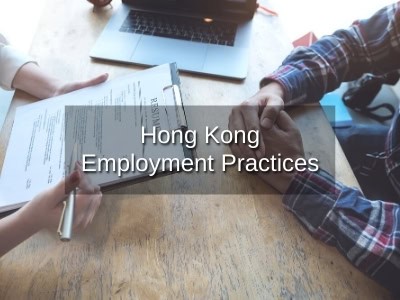This post is also available in:
![]() 繁體中文 (Chinese (Traditional))
繁體中文 (Chinese (Traditional)) ![]() 简体中文 (Chinese (Simplified))
简体中文 (Chinese (Simplified))
Hong Kong Employment Practices Are Put in Place to Protect Both Employers and Employees. Learn More
 Over the last decades, Hong Kong has become one of the topmost desirable places in Asia to start a business, making itself a force to be reckoned with. Being entrepreneurship converge, the Hong Kong Government has introduced employment laws to provide a solid code of conduct for companies and businesses to follow. Read more below on Hong Kong employment practices and why it matters.
Over the last decades, Hong Kong has become one of the topmost desirable places in Asia to start a business, making itself a force to be reckoned with. Being entrepreneurship converge, the Hong Kong Government has introduced employment laws to provide a solid code of conduct for companies and businesses to follow. Read more below on Hong Kong employment practices and why it matters.
What Are Employment Practices?
Employment practices are the standard measures of how employees are to be treated in the workplace. It defines the relationship between a company or manager with the employee. Employment practices can be seen in how a company manages its employees on a day-to-day basis. It covers employee affairs, such as:
- Hiring an applicant.
- Termination of the employee.
- Remuneration.
- Hours of work, rest time and rest days.
- Occupational safety and health.
- Complaint response system.
- Transfers and reassignment.
- Human resources development.
In Hong Kong, the main piece of legislation regarding labour is the Employment Ordinance, or simply known as the EO. The Employment Ordinance regulates and covers the rights of employees, regardless of their status (i.e. full-time worker, temporary worker, etc.). The law governs and ensures employees are protected and treated with good employment practices. To read the full length of the EO, click here.
Unlawful Employment Practices
Although laws that govern employment practices exist, there are some companies that choose not to obey and take matters into their own hands. These unlawful employment practices can be any unfair treatment towards the employee, such as shortening a new mother’s maternity leave, overworking an employee by forcing him to work overtime, promoting a worker not for her qualifications but for her familial ties. Unlawful employment practices include discrimination against an employee or an applicant’s:
- Race.
- Age.
- Sexual orientation.
- Mental or physical disability.
- Religion.
- National origin.
And more. Anytime a person is denied an opportunity for reasons not related to their professional ethics and certification, it counts as discrimination. You can read more about discrimination in the workplace here.
What You Can Do About Them
If you are met with dismissed unfairly, you can raise the issue to the Labour Tribunal. The order will either:
- Get the employer to reinstate you back to your former position (provided parties have consented).
- Order the employer to pay compensation up to HK$150 000 to the affected employee.
Also, note that the employer, if found guilty for unlawful dismissal of the employee, can be fined for his or her actions as well.
Why Good Employment Practices Matter
It is uncommon to hear employees suffer at the hands of bad or unlawful employment practices, whether they are discriminated against or unreasonably dismissed without a good cause. Every employee and applicant who have the talent, skills and qualification should be given a chance to be hired and succeed. Employees are the backbone of a company – thus, good employment practices will help create conducive workplaces and increase productivity, indirectly improving the overall economy.



